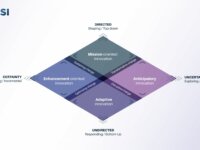On 26 September 2019, the Association of Chartered Certified Accountants organised a conference titled Creating value and driving sustainability, accountability and the digital agenda through Public Sector Innovation at the European Court of Auditors in Luxembourg. The conference was organised to launch its report on ‘Innovation in Public Finance‘. OPSI’s own Piret Tõnurist spoke at the conference, as part of the impressive line-up of experts who interrogated the …
Posts on Innovation Portfolios
This post was guest authored by Micco Gronholm, Head of Future, City of Helsingborg The City of Helsingborg, Sweden, has taken a stand. Over three years we will make an investment of a type that Sweden has never seen before. SEK 250 million will be ear-marked to be used for one thing: Anticipatory innovation to find new, smarter and more efficient ways to plan and build cities where both the people and planet can thrive....
This is a guest post from Magnus Karlsson, project manager, innovation management system at RISE Research Institutes of Sweden and national expert and chair of TK 532 innovation management at SIS Swedish Institute for Standards. Magnus shares some of the work being done to develop standards around innovation management, and its relevance to the public sector. Towards a common platform for boosting innovation management in public sector organisations The urgency to innovate in the public...
How might we take advantage of the possibilities that emerge in a crisis to build a better innovation portfolio? We took that question to a recent workshop with a delegation from the Government of Montenegro. The Montenegrins showed us what true agility looks like in practice. Montenegro: Fledgling or Agile? For context, Montenegro is currently one of two countries (including Serbia) in negotiation talks to accede to the European Union and this fact is an...
“I want to do something new. It’s going to take time and effort to get right. I don’t know whether it will work, and even if it does, it won’t instantly be better than what we already have. There will probably be unintended consequences and some of our known stakeholders will likely lose out or be displeased. Those who might benefit may not even recognise that we made the difference. If it goes wrong, it’s...
Blog
Innovation facets and core values: how different forms of innovation can cause different reactions

Have new technologies made you reconsider what you hold dear? Has change or innovation ever come into conflict, or sat uncomfortably, with your core values? Why is it that we as individuals can react negatively to things that are supposed to be beneficial? This post explore why different forms of innovation can spur different reactions from people, and what that might mean for practitioners seeking to introduce novel initiatives. We at OPSI think this is...
This post is a follow-on from our Part I post, which provided an overview of the design and development of our Innovation Portfolio Exploration workshop based on OPSI’s Innovation Facets model. Earlier this month, we facilitated a workshop with those from the public sector innovation ecosystem in Sweden. We were hosted by Vinnova, Sweden’s Innovation Agency. Vinnova invests 287 million euros annually in research and innovation projects across public, private, and academic sectors, especially…
All models are wrong, but some are useful Over the last few months, OPSI has been testing a model for public sector innovation based on our experiences with system-level studies in Canada and Brazil. As the field of public sector innovation grows and diversifies, we need a more nuanced understanding of its purposes and mechanisms for its stewardship. The multi-faceted innovation model provides a common language and a way to contextualise the purpose of innovation....
If you do not name a thing, how can you talk about it? If you avoid a word, what do you miss out on? In some recent discussions, some members of the OPSI team were talking with people from one jurisdiction about how the word “innovation” did not seem to be that commonplace in their context. It seems that as a word, innovation had gone through a period of heavy (over?) usage and was now...
Abraham Maslow once wrote, “I suppose it is tempting, if the only tool you have is a hammer, to treat everything as if it were a nail.”[1] This snappy quote captures the insight that our behaviour tends to be shaped by the tools we have at hand, and the tools we have at hand shape how we see the world and what is possible. In this post, I would like to explore our emerging thinking...








